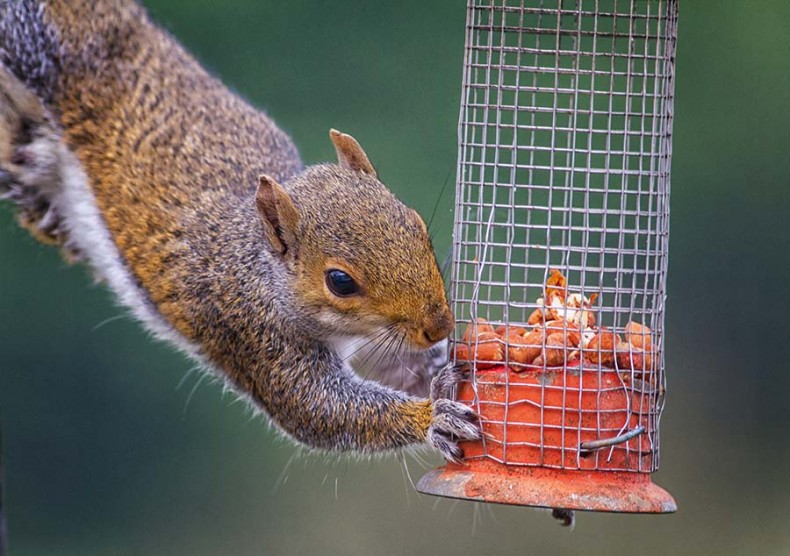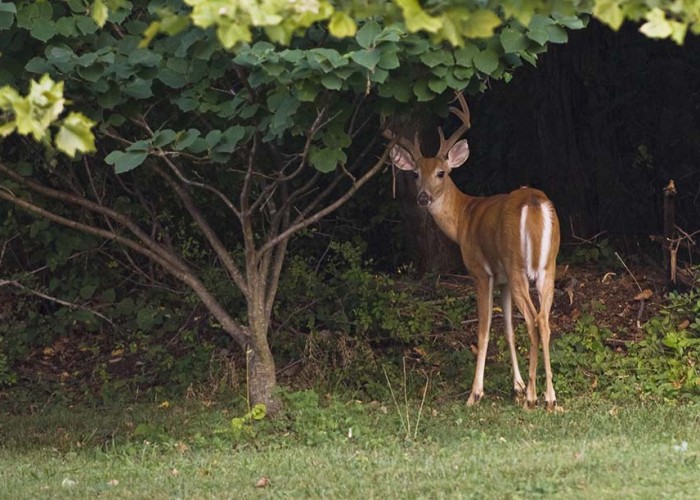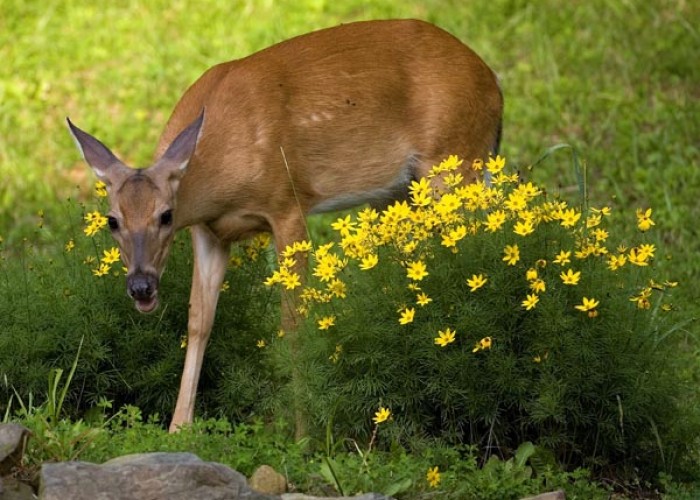Keep Your Feeder for the Birds
Safe and humane ways to encourage uninvited guest to leave the seeds for the birds
By Pamela A. KeeneWe’ve all been there: On a brisk morning, you peek out your blinds and see birds of every feather flocking together at your bird feeder. Beautiful. Peaceful. Until a squirrel invites himself to the party, turning the pleasant scene into a chaotic battle of who can hold their post at the feeder longest. Whatever species is pillaging your feeder (deer, turkey, raccoon or the infamous squirrel), there are many safe and humane ways to encourage them to leave the seeds for the birds.
Deer
Whether they sneak in after dark or stare at you with a mouthful of seeds in the daylight, deer are notorious for cleaning out feeders. Deer-proof your yard with these strategies:
- Take down feeders at night.
- Raise feeders out of reach.
- Change birdseed to a spicy blend.
- Use deer deterrents mentioned in this article.
Turkeys
These large birds can riddle your yard with hundreds of droppings. The first step to getting rid of turkeys is to ensure you are not feeding them, directly or indirectly:
- Secure garbage cans.
- Rake up spilled birdseed under your feeders.
- Scare them away with motion-activated scarecrows and sprinklers, as long as the temperature does not dip below freezing.
- Buy a bird feeder designed to keep big birds out.
Cats
While not necessarily interested in the birdseed, cats can change the scene from a feeding to a hunting spot. Here are a few ways to change this statistic:
- Make your cat an indoor-only feline.
- Ask neighbors to tie a bell on their cat’s collar so birds can hear when the cat approaches.
- Give birds places to perch and hide by planting trees and shrubs near your feeder.
Raccoons
Since raccoons are mostly nocturnal, a few common strategies can be used to deter them:
- Put out only enough seed for the birds to eat in one day.
- Take away the feeders for a week.
- Suspend feeders on a wire or hang them high on a skinny pole.
- Store birdseed in a secure place such as a garage or a can with a tight-fitting lid.
- Do not apply grease or oil on bird feeder wires or poles. Grease can get on birds’ feathers, making them unable to preen it off, fly and insulate themselves.
Squirrels
These agile furballs can get into just about anything. Since they are a universal pest, many products have been made to keep them out:
- Use squirrel baffles that attach to the base or top of a feeder pole so squirrels cannot continue climbing.
- Invest in a squirrel-proof feeder.
- Buy safflower seed, nyjer thistle or millet birdseed blends.
- Hang feeders at least 8 feet away from the tree trunk on a wire more than 10 feet long.
- Do not use sticky material to cover bird feeder surfaces. It can kill birds.
About the Author
Pamela A. Keene is a freelance writer and photographer based in Atlanta.-
More ways to keep pests out of your garden
-
Share this story:






Comments (2)
Ellen Hughes |
June 26, 2018 |
reply
Natalie Garrett |
January 12, 2019 |
reply